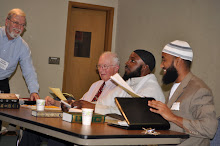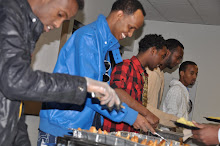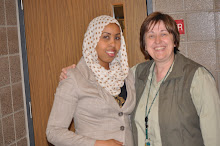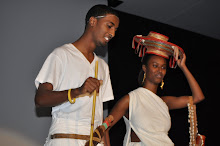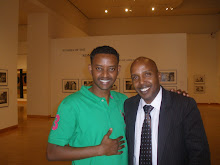CAIR case could take 6 months
By Dave Aeikens • May 27, 2010
Comments(36)RecommendPrint this page E-mail this article Share
Del.icio.us Facebook Digg Reddit Newsvine Buzz up!
Twitter FarkIt Type Size A A A Next Page1| 2Previous Pagedaeikens@stcloudtimes.com
The federal investigation into discrimination claims at St. Cloud’s two public high schools could take six months or longer unless they reach an agreement called early complaint resolution.
The U.S. Department of Education’s Office of Civil Rights said this week it plans to investigate allegations of racial and ethnic discrimination against Somali students in St. Cloud and Owatonna. The complaint comes from the Minnesota Chapter of the Council on American Islamic Relations, which wrote the Office of Civil Rights in March saying the district had failed to adequately respond to harassment, taunting and name-calling at Apollo and Technical high schools.
CAIR Minnesota’s President Lori Saroya said her group would be open to the mediated settlement discussions that the Office of Civil Rights offers.
“Our concern has always been the students. We just want to see the change in environment. In the end, it affects not only their academics, it affects them emotionally,” she said. “We are seeing it in students not doing well in school. We need to create an environment where they do well.”
Superintendent Steve Jordahl said he’s not certain about a settlement because he is unsure what it entails.
“I’d like to work together with anyone who wants to work together with us to help kids,” said Jordahl, who is leaving the district June 30 to pursue other opportunities.
Board Chairwoman Sigrid Hedman-Dennis said the district might be interested in resolving the case before the investigation is completed. She said the district has a provided safe and welcoming environment for students and has responded properly when incidents happened. The district has more than 700 students who list their native language as Somali.
“Certainly we want to sit down and be sure we are meeting the letter of the law. But we are also claiming something we have not done,” Hedman-Dennis said.
The district this month released a report detailing the results of an investigation of alleged harassment of Somali students at Apollo High School. The report showed that some harassment did occur against Somalis and the district responded to the complaints. Some incidents detailed harassment of non-Somalis by Somalis.
CAIR case could take 6 months
By Dave Aeikens • May 27, 2010
Comments(36)RecommendPrint this page E-mail this article Share
Del.icio.us Facebook Digg Reddit Newsvine Buzz up!
Twitter FarkIt Type Size A A A Next Page1| 2Previous Pagedaeikens@stcloudtimes.com
The federal investigation into discrimination claims at St. Cloud’s two public high schools could take six months or longer unless they reach an agreement called early complaint resolution.
The U.S. Department of Education’s Office of Civil Rights said this week it plans to investigate allegations of racial and ethnic discrimination against Somali students in St. Cloud and Owatonna. The complaint comes from the Minnesota Chapter of the Council on American Islamic Relations, which wrote the Office of Civil Rights in March saying the district had failed to adequately respond to harassment, taunting and name-calling at Apollo and Technical high schools.
CAIR Minnesota’s President Lori Saroya said her group would be open to the mediated settlement discussions that the Office of Civil Rights offers.
“Our concern has always been the students. We just want to see the change in environment. In the end, it affects not only their academics, it affects them emotionally,” she said. “We are seeing it in students not doing well in school. We need to create an environment where they do well.”
Superintendent Steve Jordahl said he’s not certain about a settlement because he is unsure what it entails.
“I’d like to work together with anyone who wants to work together with us to help kids,” said Jordahl, who is leaving the district June 30 to pursue other opportunities.
Board Chairwoman Sigrid Hedman-Dennis said the district might be interested in resolving the case before the investigation is completed. She said the district has a provided safe and welcoming environment for students and has responded properly when incidents happened. The district has more than 700 students who list their native language as Somali.
“Certainly we want to sit down and be sure we are meeting the letter of the law. But we are also claiming something we have not done,” Hedman-Dennis said.
The district this month released a report detailing the results of an investigation of alleged harassment of Somali students at Apollo High School. The report showed that some harassment did occur against Somalis and the district responded to the complaints. Some incidents detailed harassment of non-Somalis by Somalis.
Office of Civil Rights officials say the goal is to complete the investigation in six months, but that timeline is not legally binding and investigations often take longer. The agency already has asked the school district in a letter for nine items that include reports, policies, student records, and detailed accounts of how each harassment case was handled. It gave the district a deadline of Friday. The district has turned the matter over to its lawyers and could ask for more time.
The investigation could create pressure on the district’s budget. The district has a $60,000 annual budget for legal fees, director of business services Kevin Januszewski said. It is not covered by insurance for this situation.
Jordahl said he worked at Willmar school district as a teacher when it went through a similar discrimination investigation. He said it can consume a lot of time digging up records and printing documents.
“I know when we run discipline data, you can run what looks like a whole book,” Jordahl said. “Obviously, you have to comply. You have to do what is right, be completely transparent.”
Sauk Rapids-Rice went through an Office of Civil Rights investigation in 2007 when parents accused it of gender discrimination in its sports programs.
Superintendent Greg Vandal said the district lawyers worked with the investigators and district staff compiled loads of paperwork.
“We had to produce quite a number of activities records that went back many, many years,” Vandal said.
He said the district was asked to produce team rosters going back 30 years, and when staff could not find the rosters they had to create them from yearbooks.
He said in addition to legal fees, it takes up staff time.
“The cost of legal help is only one cost to the system. It is an intangible but it is a very real drain on the system,” Vandal said.

